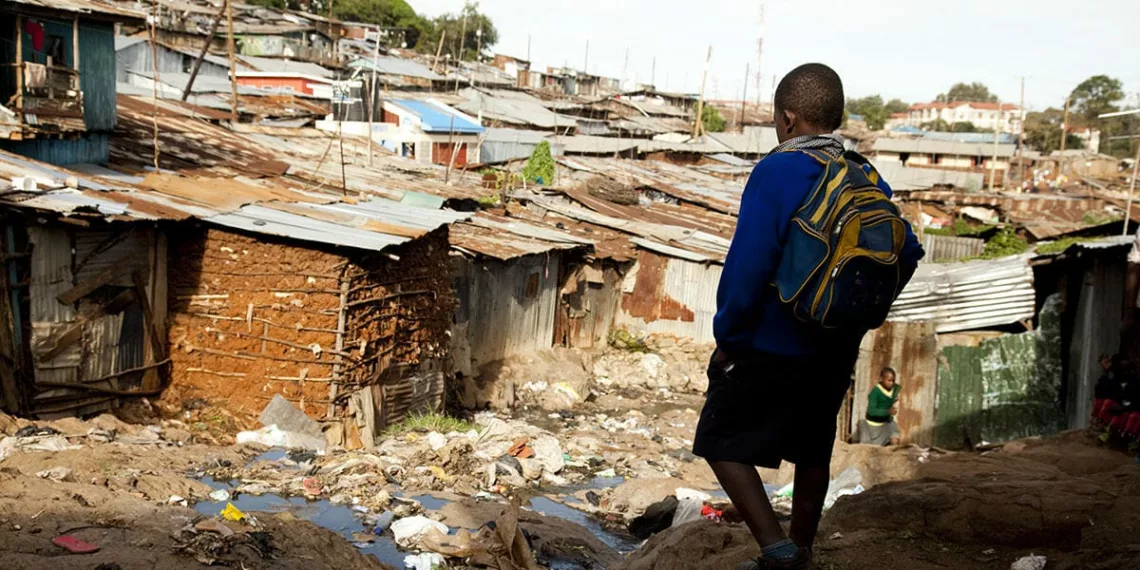Nigeria’s most recent state poverty index shows that the states of Sokoto and Taraba have the largest percentage of people living below the poverty line. The lowest poverty rates were recorded in the southeastern and South-western states. In Lagos, this figure equaled 4.5 percent, the lowest rate in Nigeria. That statistic remains largely unchanged today.
Based on the National Bureau of Statistics’ recent report, 40 percent of Nigerians live on N137,000 annually or N11,414 monthly. That is far below the internationally accepted poverty line of N277,035 annually, or N23,086 monthly.
As if to worsen matters, a recent report by the NBS showed that 63 per cent of the population, 133 million Nigerians are multidimensionally poor.
One of the most important objectives of the federal government and state governments is the eradication of poverty. In efforts to achieve that important objective, there has been the launch of several programmes in the past and present that span across sectors.
However, gleaning from the experiences of other countries that have conquered poverty on a relative scale, education is the most potent weapon against poverty.
Interestingly, the poverty level in individual states starkly aligns with the level of education in those states, and by implication, in the states with the lowest levels of poverty.
Over the last century in particular, education was the indubitable force used to fight poverty. It cannot be denied that in today’s world – in the 21st century – the literacy and numeracy skills taken to impoverished countries and cultures have irrevocably changed their indigenous peoples’ prospects for the future.
Education helps people to understand and make considered decisions about their own futures. It empowers them to take action against tyranny and oppression and frees them from state-sponsored enslavement.
In affluent nations such as the G-7, where overall adult literacy is much higher, it is a verity that better-educated individuals are more capable of rising out of poverty than their less-educated counterparts. It is no longer the case that being born into poverty is an irreversible life condition. Education makes it possible for anyone to grow, develop and succeed.
During the World Education Forum held in Dakar in April 2000, the international community underscored the need to eradicate extreme poverty and gave its collective commitment to work towards this aim through education.
Subsequently, the United Nations General Assembly declared the period 1997 to 2006 as the First United Nations Decade for the Eradication of Poverty.
The role of education in poverty eradication, in close cooperation with other social sectors, is crucial. No country has succeeded if it has not educated its people. Not only is education important in reducing poverty, but it is also a key to wealth creation.
Within this context, one of the pledges of the Dakar Framework for Action – Education for All: Meeting our Collective Commitments, was to promote Education For All policies within a sustainable and well-integrated sector framework clearly linked to poverty elimination and development strategies.
The role of education in this process is particularly one of achieving universal primary education and adult literacy. The report made by the Secretary-General of the United Nations within the context of the Decade for the Eradication of Poverty confirms that universal primary education is central to the fight against poverty. Understandably so, because this is the level of education through which most poor children pass and within which their achievements should assist them to break the cycle of poverty.
In fact, education is the social institution that reaches the largest segment of the population with the goal of guiding it through a systematic learning process.
There is no doubt that delivering primary education and adult literacy to the peoples of Nigeria’s less educated states, and by implication, the poorer population is achievable. That is the most potent means of fighting poverty and reducing crime in society.





